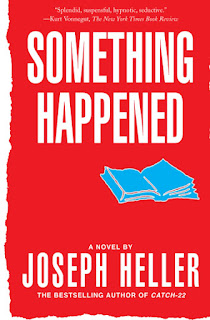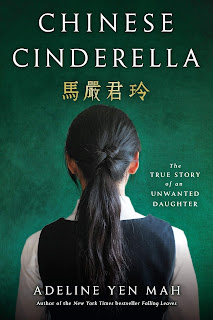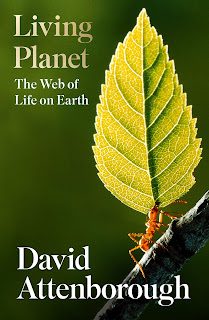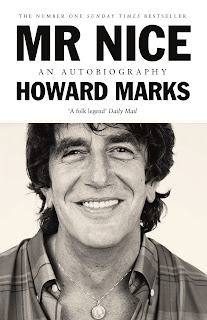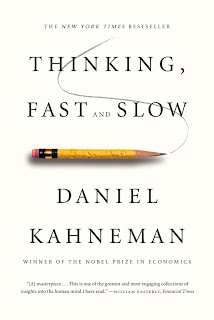I try, I always do, I swear. I really try not to buy another book by this author when, while walking past the bookstore section dedicated to him, a novel that I still haven’t read catches my eye. The first thought that comes to mind is: “Come on, your reading list is so long and varied, and you’ve already read quite a few of Harukis’s books recently, no need to buy another one so soon!” Famous (and useless) last words, I think, while I walk out of the shop intrigued by the synopsis that I’m reading on the last page of the paperback I’ve just purchased.
Here you won't find the pages of a pedantic journal, praises to fantastic places or accounts of memorable encounters. This is a collection of stories, thoughts, images, and most of all odd stuff, even though to someone else it might actually look ordinary. To discern its bizarre side, in fact, special filters are needed: cynicism, fussiness, stubbornness, isolation, impudence, nosiness and nerdiness. All flaws that, in different measure, this semi-nomadic being has got embedded in his genes.
Friday, December 30, 2022
After dark - Murakami Haruki
I try, I always do, I swear. I really try not to buy another book by this author when, while walking past the bookstore section dedicated to him, a novel that I still haven’t read catches my eye. The first thought that comes to mind is: “Come on, your reading list is so long and varied, and you’ve already read quite a few of Harukis’s books recently, no need to buy another one so soon!” Famous (and useless) last words, I think, while I walk out of the shop intrigued by the synopsis that I’m reading on the last page of the paperback I’ve just purchased.
Labels:
books,
chinese,
coincidences,
destiny,
fate,
japanese,
literature,
mafia,
murakami haruki,
night,
novels,
reviews,
Tokyo,
yakuza
Wednesday, December 28, 2022
The Prague cemetery (Il cimitero di Praga) - Umberto Eco
It happened a few times while I was abroad. I said that I was from Italy and the person with whom I was speaking suddenly informed me that their favorite author was also Italian. Once they even asked me to guess who it was. Dante? I thought. No, too old. Montale? Too obscure. Volo? Come on! I give up, who is it? But of course, Umberto Eco! That was their answer. Eco? Wow, I’m surprised, I said. But why was I surprised, then? I have read my first Eco’s novel when I was a kid (if you guessed “The name of the rose”, well, you guessed right) and I have read every novel by him that I came across ever since. I loved each and every one of them. There was no reason to be surprised at all.
Labels:
antisemitism,
books,
conspiracy theories,
counterfeiting,
france,
history,
Italy,
literature,
novels,
paris,
reviews,
scheming,
spying,
torino,
umberto eco
Thursday, December 22, 2022
The emperor of all maladies - Siddhartha Mukherjee
I’ve already introduced Siddhartha Mukherjee when I reviewed “The gene”. What I said about Oliver Sacks is true for Mukherjee as well: a great scientist with outstanding literary skills.
He studied biology - that’s why he wrote a book about genetics - and works as a haematologist and oncologist, hence this work about cancer. A great book about a terrible subject, some might say.
Tuesday, December 13, 2022
Thus bad begins (Así empieza lo malo) - Javier Marías
In this novel Javier Marías makes use of a literary technique that has been employed in the past by some very famous colleagues of him: Francis Scott Fitzgerald (The great Gatsby) and Truman Capote (Breakfast at Tiffany's), just to name a few.
The main character, with whom the readers become very acquainted as the story unfolds, is actually just a proxy through which the author tells his story: he acts as a mere narrator and has little or no impact on the plot, besides observing and relaying, of course. On top of that the plot itself is not particularly engaging or original. Why did you read the book then? Or why are you recommending it? You’ll be asking. Because the plot is not necessarily what makes a book a good book.
Tuesday, December 6, 2022
The scent of India (L'odore dell'India) - Pierpaolo Pasolini
In 1961, Pierpaolo Pasolini - Italian poet, novelist, journalist and film director - joined colleague authors Alberto Moravia and Elsa Morante on a month-long trip to India.
The entries in this travel diary mostly reflect the author’s reactions to the situations he’s experiencing in terms of feelings and sensations - and some cultural/religious interpretation - rather than being cool headed rational, sociological and political explanations of them. India comes out as a barren, dirty and bad smelling pile of shaky buildings, open-air sewers, busy roads and temples, populated by a vast majority of multi-religious, ragged, placid, kind and sweet people, and a still new, stunned and unprepared well-off minority, whose only human strengths are their webs of family ties.
Labels:
alberto moravia,
books,
conformism,
diary,
elsa morante,
India,
journalism,
literature,
pierpaolo pasolini,
poverty,
reviews,
society,
travels
Tuesday, November 29, 2022
Snow flower and the secret fan - Lisa See
This is yet another novel about women in China. It’s based in the nineteenth century, in a very rural area. Ancient traditions still apply: feet binding, arranged marriages, transfer to the groom family after the wedding ceremony, seclusion in dedicated rooms, tiring house chores, endless childbearing. Women are expected to deliver sons and they are looked down upon and abused in case they only give birth to daughters or they don’t have children at all. More often than not their husbands take up concubines when their wives get older and less attractive.
Labels:
arranged marriage,
books,
china,
foot binding,
laotong,
literature,
novels,
nushu,
opium addiction,
reviews,
taiping rebellion,
women,
yao people
Thursday, November 24, 2022
Something happened, Work - Joseph Heller
If the name Joseph Heller doesn’t ring a bell, just think of how many times you’ve said “Catch-22”, when referring to a lose-lose situation, a dilemma, a deadlock, a paradoxical standoff. Well, that’s the title of his masterpiece, and that’s where the expression comes from.
“Work” is actually an extract from “Something happened”, Heller’s second great work. I did read the actual novel a few years ago, but I really loved reading this brief selection of some of its best parts again.
Labels:
books,
catch 22,
corporate,
extract,
joseph heller,
literature,
novels,
office,
reviews,
something happened,
work
Monday, November 21, 2022
Chinese Cinderella - Adeline Yen Mah, Mao's last dancer - Li Cunxin
Chinese Cinderella and the Secret Dragon Society is one of five books that I picked up from the Chinese literature section of a second hand bookstore in Bangkok. While reading the introduction I found out that it is categorized as children fiction. I was about to drop it, then I decided to give it a try. Well, if this is a novel for children, then nowadays children are very lucky! I read it all. Though I am a bit of a history buff and I have spent quite some time in China and Shanghai, where most of the characters live, reading this book I’ve learned a few things I didn’t know or I had forgotten.
Labels:
ballet,
books,
children,
china,
cultural revolution,
dancing,
famine,
great leap forward,
Japan,
literature,
mao zedong,
music,
occupation,
pcc,
pearl harbor,
reviews,
wwii,
young readers
Monday, November 14, 2022
Wild swans: three daughters of China - Jung Chang
This novel reminds me of great family sagas such as War and Peace, One hundred years of solitude or The house of the spirits, where the authors tell the history of their respective countries over many decades through the vicissitudes of a few generations of one or more families.
Jung Chang recounts the history of twentieth century China while writing the biographies of three women: her grandmother, her mum and herself.
Tuesday, November 8, 2022
The bridegroom - Ha Jin
This is a collection of short stories. I’ve always liked the genre and I’ve read quite a few such books in the past, mostly American but also European and Asian - Korean and Japanese to be precise. This is the first time that I read short stories written by a Chinese author (who writes in English though).
The stories are all based in post cultural revolution China. The country is developing fast but still recovering from the social and material disasters of the previous decade.
Labels:
books,
china,
cultural revolution,
development,
ha jin,
literature,
recovery,
reviews,
short stories
Thursday, October 27, 2022
This changes everything - Naomi Klein
Although I’ve seen Naomi Klein’s books on bookstore shelves dozens of times, this is the first one that I actually bought and read. For some reason I thought she was a particularly good literary version of a no-global fanatic. And I am not very attracted by fanatics, even though their cause might be a noble one. Damn, I was wrong. She is quite the opposite: a competent, clever, original opponent of neoliberal and free trade fanaticism. In this book she tackles the effects of the modern capitalist dogmas on arguably the most precious thing that we - as a community, a living species, and an integral part of nature - all posses and share: the earth, its ecosystems and delicate balance.
More than three decades after the first intergovernmental climate-change related debates and agreements, carbon emissions, rather than being reduced or at least kept stable, have increased manifold and global warming has reached unprecedented levels, causing ever more frequent and devastating natural disasters all over the planet, the poorest parts of it in particular.
Why? What happened?
Labels:
activism,
books,
capitalism,
climate change,
environment,
global warming,
naomi klein,
neoliberalism,
politics,
reviews
Thursday, October 20, 2022
The reluctant fundamentalist - Mohsin Hamid
This is the story of a well groomed, clever and charming Pakistani young guy who moves to the US, graduates brilliantly from one of the best American colleges, finds a well paid job in a successful New York financial firm and gets a rich and beautiful - although troubled - girlfriend.
Everything seems to progress perfectly for Changez, when, all of a sudden, 9/11 happens.
Labels:
9/11,
afghanistan,
books,
colleges,
finance,
literature,
mohsin hamid,
monologue,
novels,
pakistan,
reading,
reviews,
terrorism,
usa
Monday, October 10, 2022
Five past midnight in Bhopal - Dominique Lapierre & Javier Moro
I’d already read a couple of books by the French author Dominique Lapierre. I particularly liked “Freedom at midnight” about India and Pakistan independence and partition, which I read when I was traveling in the subcontinent. “O Jerusalem”, about the birth of the State of Israel and the first dramatic days of war between the Jewish state and its neighboring Arab countries, is also a very good one.
“Five past midnight in Bhopal” takes us back to India, a country that the author knows well. Lapierre often collaborates with some colleague when writing non fictional works. He wrote the aforementioned books together with the American journalist Larry Collins and this one with Javier Moro from Spain.
Bhopal is for chemical accidents what Chernobyl is for nuclear ones.
Labels:
accident,
asia,
bhopal,
books,
capitalism,
chemical,
chemical plant,
dominique lapierre,
history,
India,
javier moro,
nonfiction,
reviews,
union carbide
Tuesday, October 4, 2022
The algebra of infinite justice - Arundhati Roy
I read Arundhati Roy’s bestselling debut novel “The God of small things” many years ago. It’s a fantastic story about castes, power, exploitation, love and violence. “The algebra of infinite justice”, on the other hand, is a non-fiction book: a collection of essays and articles that Arundhati wrote between 1998 (the year Pakistan and India tested their newly developed nuclear weapons) and 2002, one year into the war on terror waged by the US and their allies after 9/11, when talks about attacking Iraq after Afghanistan were mounting.
The themes of the book are pretty much the same as the ones of the novel, but on a much wider scale.
Tuesday, September 20, 2022
The God delusion - Richard Dawkins
You might be sincere and passionate about your religious faith and conviction, yet debating the topic with the likes of Richard Dawkins turns out to be a very difficult task. He not only is an evolution theory guru, he’s also skilled in philosophical arguments and seems to be very at ease debating religious matters with the most prominent theologians.
Dawkins admits that religion could well be regarded as an innocuous matter of personal choice, under some specific theoretical conditions. Unfortunately those conditions are not met in the real world: religions continuously put pressure on institutions that have a secular nature, interfere with the private preferences and lives of common people (both religious and non religious) and are at the bottom of countless conflicts worldwide. It’s been like that for centuries. Sometimes those conflicts are actually about something entirely different - land control, natural and financial resources, political power - it’s true, but without religions you wouldn’t be able to separate the various factions in the first place. And if you didn’t have the conflicting factions, you wouldn’t probably have the conflicts at all.
Labels:
atheism,
biology,
books,
evolution theory,
god,
literature,
nonfiction,
philosophy,
popular science,
religion,
reviews,
richard dawkins,
science,
theology
Monday, September 12, 2022
A short history of nearly everything - Bill Bryson
Bill Bryson, the famous travel writer, one day realized that he didn’t have an answer for even the most basic questions about why the world is the way it is and works the way it does. Therefore he embarked on a journey through articles, books and interviews that helped him shed some light on many of nature’s supposed mysteries.
Labels:
astronomy,
bill bryson,
biology,
books,
mass extinctions,
nonfiction,
physics,
popular science,
reviews,
science
Monday, September 5, 2022
Living planet - David Attenborough
Who doesn’t know David Attenborough? Everyone has watched at least one of his documentaries, listened to his elegant narrating voice, enjoyed his poetic, delicate, sometimes ironic comments on the world wildlife and plants. Richard Dawkins, in one of his books, referred to him as “arguably the most respected person in the UK”.
Labels:
adaptation,
books,
david attenborough,
earth,
environment,
evolution,
fauna,
planet,
plants,
popular science,
reviews,
wildlife
Tuesday, August 23, 2022
To have and have not - Ernest Hemingway
The first time I read a Hemingway’s novel I was still a student. It was an Italian translation of “The old man and the sea” (“Il vecchio e il mare”). I liked it, but it didn’t lure me into reading more from the same author. Maybe it was the translation, or I was not yet ready for it. A few years later - I was already working and travelling around the world and my English had gotten a bit better - I bought another one of his books - not sure whether it was “The Sun also rises” or “The first 49 stories” - and I fell in love with him.
Labels:
american,
books,
cuba,
drama,
ernest hemingway,
florida keys,
literature,
reviews,
romantic,
smuggling,
usa
Wednesday, August 17, 2022
Life, the universe and everything - Douglas Adams
I was looking for the most famous book by the same author - The hitchhiker’s guide to the galaxy - and as I didn’t find it I left with this one instead, to see what it is about.
It’s a comic science fiction novel. I had already read some science fiction books before, even though it’s not my favorite genre, but never one of the “comic” variant. I didn’t even know it existed as a category, actually.
Wednesday, August 3, 2022
The disappearing act - Florence de Changy
I remember the MH370 case very clearly. I was in S.E. Asia at the time, chilling out in the Philippines. I knew Malaysia airlines very well, having flown with them numerous times. Not Kuala Lumpur to Beijing (the actual route of MH370), but from KL to Bangkok, Singapore, Manila and also Kunming in the PRC. I might even have been onboard that same aircraft, or have met some of the unfortunate flight crew members.
I remember the airplanes, the airports, the cabin crews and their uniforms, the food and all the amenities. It was one of my favorite airlines. Then came 2014, the annus horribilis of Malaysian aviation: first the disappearance of MH370, then the destruction by a missile over east Ukraine of MH17 bound to Amsterdam, and finally the crash of an Airasia flight that had just left from Indonesia.
Labels:
accidents,
airasia,
aviation,
beijing,
books,
china malaysian airlines,
civil,
conspiracy theories,
flight,
klia,
kuala lumpur,
malaysia,
mh17,
mh370,
mysteries,
operations,
plane,
rescue,
reviews
Tuesday, July 19, 2022
David and Goliath - Malcolm Gladwell
The question and wonder that has become a metaphor: “How did David manage to achieve such an improbable feat as beating Goliath?”.
The answer, as Malcolm Gladwell suggests, can be found in another question: why do we suppose that David is the weaker party, the underdog, the likely loser?” Maybe we haven’t assessed the situation well enough.
Labels:
books,
literature,
malcolm gladwell,
myths,
popular science,
psychology,
reviews,
science,
social,
sociology
Monday, July 4, 2022
Mr nice - Howard Marks
I’ve seen this book on the shelves of the second hand bookstores of pretty much all the places I’ve visited in the last two decades. It’s one the young travellers’ favourites. Sometimes a shop might even have three or four copies of it, which for a used book is a lot. It’s not surprising though, being it the autobiography of Howard Marks, a famous dope smuggler that eluded capture while importing tons of weed and hashish to the US and Europe for decades, making millions of dollars, living in luxury in England, Switzerland, Italy and Spain, smoking the best cannabis, visiting exotic places and living an adventurous life. A hero for many young travellers.
Monday, June 27, 2022
The border trilogy - Cormac McCarthy
You might not know Cormac McCarthy but you probably know some of his stories. Famous movies have been made based on some of his novels: “No country for old men”, “The road” and “All the pretty horses”.
The last one is part of the trilogy I’m talking about here. The other two books of the series are “The crossing” and “Cities of the plain”.
The stories are all based across the border between the US and Mexico. Parts of the dialogs are in Spanish. The stories are set between the 40s and the 50s of the twentieth century and some of the characters are old enough to remember the Mexican revolution.
Thursday, May 26, 2022
Why we sleep - Matthew Walker
This book is super interesting. People who like to sleep a lot will love it and those who are sleep-deprived or, even worse, boast about being able to carry a healthy and active life with only a few hours of slumber each night, well…they definitely need to read it.
Matthew Walker, a real guru on the subject, starts by explaining what sleep is, how it works and how it evolved over the aeons. You’ll get to know about sleep phases (NREM, REM, etc.), circadian rhythm, fundamental chemical reactions, how different animal species sleep and the various changes across the life span.
Labels:
books,
brain,
dreaming,
dreams,
matthew walker,
nrem,
popular science,
psychology,
rem,
reviews,
science,
sleep
Tuesday, April 12, 2022
Girl with curious hair, The broom of the system - David Foster Wallace
David Foster Wallace is considered a rare genius, and not just as a writer. I don’t know much about his life, except that he committed suicide when he was still quite young. All I know about his work is what is written in these two books I recently read. The first is a collection of short stories, the second one is a novel.
The guy was definitely talented: gorgeous prose, rich vocabulary, fervid imagination. He could masterfully play with language and literary techniques, mix real characters and fictitious ones, handle history, psychology and popular culture.
Labels:
american,
books,
david foster wallace,
literature,
novels,
reviews,
short stories
Friday, March 25, 2022
Hard boiled wonderland and the end of the world - Murakami Haruki
Murakami, buy-one-get-one-free option. Two stories told through alternating chapters.
The first one is based, as usual in Murakami's novels, in a slightly dystopian version of modern day Japan, where two powerful organizations are fighting an all-out cyber-war, and a band of invisible mutants roam around a web of tunnels connected to Tokyo's subway system.
The first one is based, as usual in Murakami's novels, in a slightly dystopian version of modern day Japan, where two powerful organizations are fighting an all-out cyber-war, and a band of invisible mutants roam around a web of tunnels connected to Tokyo's subway system.
Labels:
books,
fiction,
japanese,
literature,
murakami haruki,
music,
novels,
reviews,
Surrealism
Wednesday, March 2, 2022
A history of Western philosophy - Bertrand Russel, Sophie's world - Jostein Gaarder
These books offer two different approaches to anyone who wants to be introduced to western philosophy. They both range from the Greek Pre-Socratics to contemporary German, French and English speaking thinkers. One of them even gets to talk about the Big Bang Theory.
Labels:
bertrand russel,
books,
history,
jostein gaarder,
philosophy,
reviews,
thinking,
western
Wednesday, February 9, 2022
Thinking fast and slow - Daniel Kahneman
In this book the Nobel prize winning psychologist Daniel Kahneman explains how our mind works as if it housed two separate systems, each one with its own skills, specialized in dealing with different circumstances: the fast and slow thinkers the book title is about.
System 1 is automatic, always switched on, intuitive, looking out for surprises or anomalies, keen on stereotyping and sampling. It is very good at doing what it does, most of the time that is, but is sometimes prone to catastrophic errors. System 2, on the other hand, is analytical, logical, statistical, can perform complex calculations and reasoning, but it’s lazy and effortful, in sleeping mode as often as not, and might also act as an apologist for its mate’s shortcomings.
Labels:
behavior,
books,
daniel kahneman,
economics,
evolution,
instincts,
mind,
nobel prize,
popular science,
psychology,
rationality,
reviews
Thursday, February 3, 2022
Tuesday, January 11, 2022
1Q84, Kafka on the shore, Killing commendatore - Murakami Haruki
These three books are typical Murakami Haruki's style, full of metaphors, surreal events, bizarre characters and historical references.
The story always starts when the lives of the main characters have reached some kind of a dead end. There is some deep meaning that must be deciphered in order to untangle the messy knot, a mystery that is most often hidden among the brush strokes of a mesmerizing painting or the chapters of a fancy novel.
Labels:
books,
fiction,
japanese,
literature,
murakami haruki,
music,
novels,
reviews,
Surrealism
Subscribe to:
Posts (Atom)









